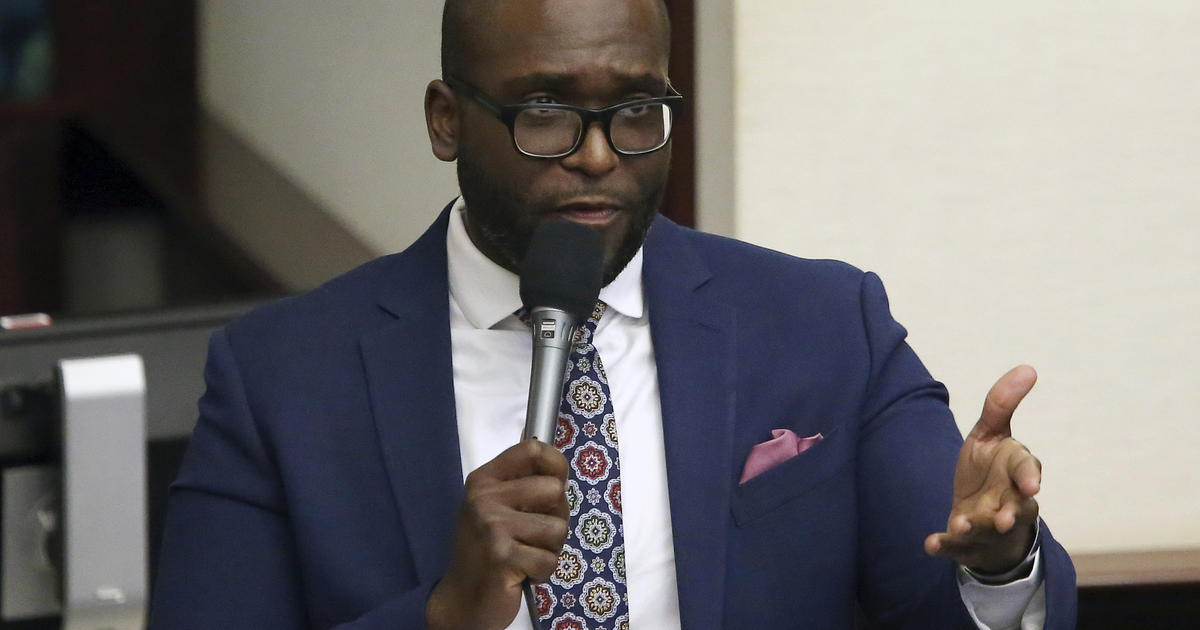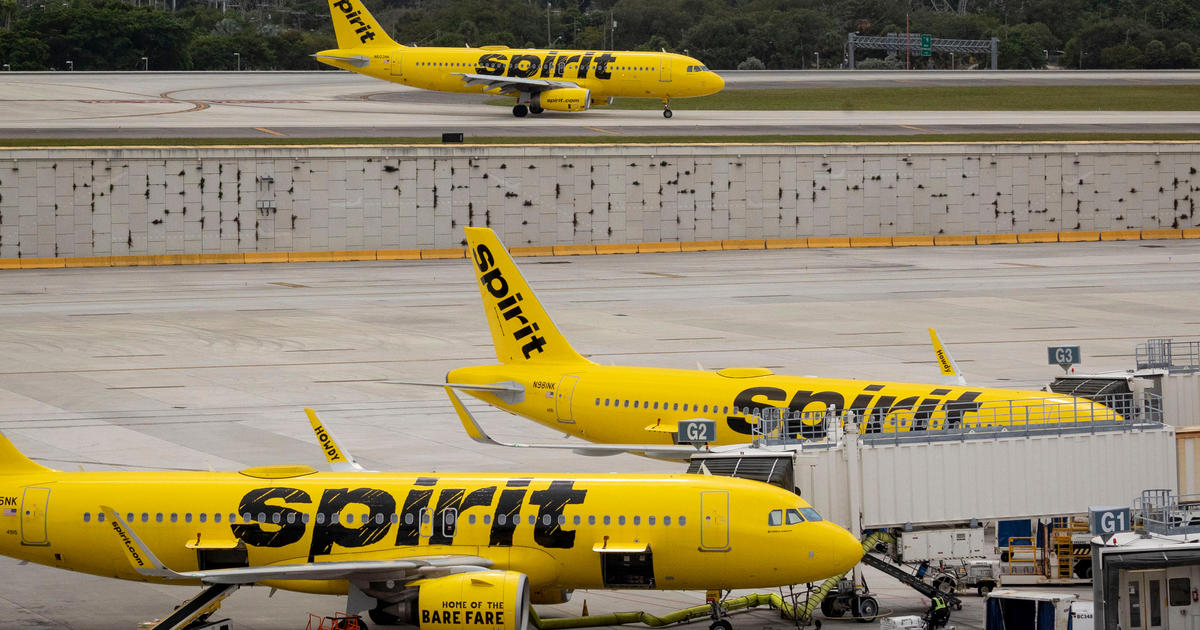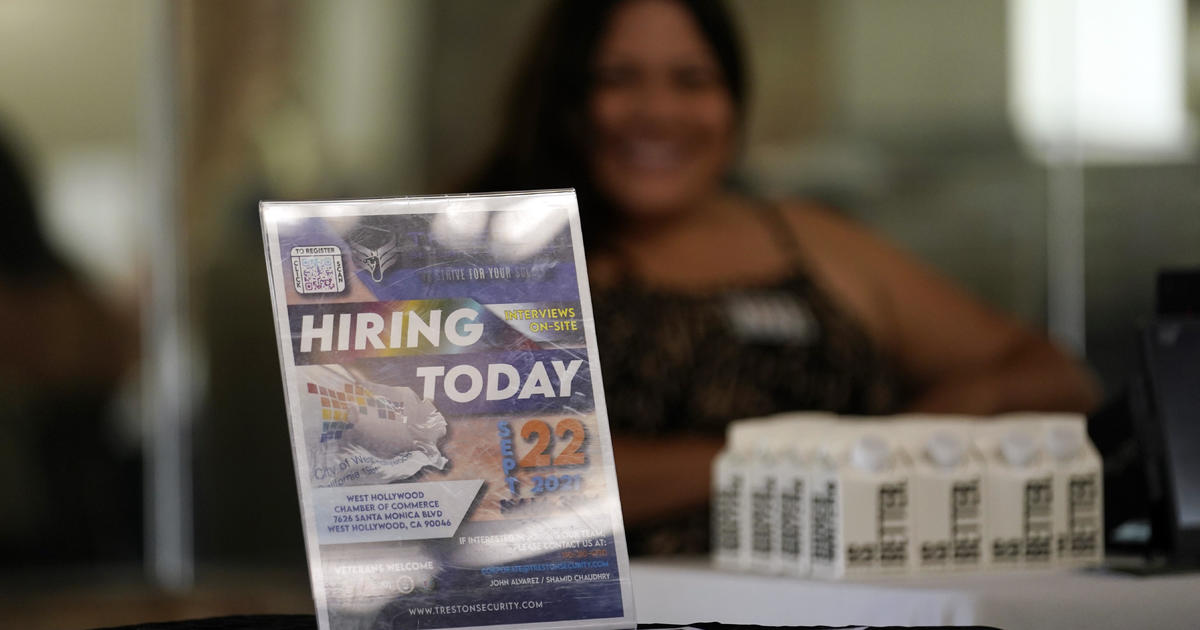Some Progress Made In New State Gambling Deal
Follow CBSMIAMI.COM: Facebook | Twitter
TALLAHASSEE (CBSMiami/NSF) - Seminole casinos would get craps and roulette, a Palm Beach County dog track could have slot machines and the state could reap at least $3 billion over seven years, under a gambling deal being negotiated between state leaders and the tribe.
The agreement, which is still a long way from being finalized, would also allow a new gambling operation in Miami-Dade County to start up with slot machines and permit dog tracks to stop racing greyhounds while retaining lucrative card rooms.
Multiple sources close to the negotiations provided details to The News Service of Florida about the ongoing talks between the Seminoles and Gov. Rick Scott's office, which is working in tandem with House and Senate leaders to rewrite a 20-year agreement, called a "compact," that authorized the tribe's slot-machine and table-game operations. A provision of the deal, inked in 2010, gave the Seminoles exclusive rights to operate banked card games, such as blackjack, for five years in exchange for a minimum payment of $1 billion. That portion of the compact expired this summer.
Under the talks, the Seminoles would guarantee a minimum $3 billion over seven years as part of compact that would last another 20 years.
"What I can confirm is that negotiations have made significant progress. We're at a place where the taxpayers will be seeing a significantly higher share from the tribe than they currently receive. That would be hundreds of millions of dollars that we could use to invest in education, infrastructure or other core services. … I can also confirm that we could do all of this and also, for the first time, contract gaming in areas where it's dying," said Senate Regulated Industries Chairman Rob Bradley.
A portion of the revenues would go to supplement purses for thoroughbred horse races, now running at Gulfstream Racetrack and Tampa Bay Downs.
The latest proposal would also ban "player-banked" card games, now underway at a number of pari-mutuels, in Miami-Dade and Broward counties. Pari-mutuels in other counties could continue to run the games, in which the "bank" is another player instead of "the house," but the state would impose clearer guidelines regarding the popular games.
The Seminoles contend that the games, first authorized by state gambling regulators in 2011, violate the tribe's rights to exclusivity in operating banked card games, which typically involve players betting against the house instead of against each other.
Many of the components now under discussion don't directly affect the Seminoles but instead deal with the pari-mutuel industry and would be considered as part of a bill authorizing the agreement, which lawmakers would most likely consider during the legislative session that begins in January.
For example, the Seminoles are purportedly "agnostic" about decoupling horse and dog racing from other gambling activities, including slots at the South Florida pari-mutuels and card rooms at facilities in other counties. Currently, pari-mutuels are required to have racing or jai alai games if they want to offer card rooms or slots.
While it is almost certain that any legislation would allow dog tracks to drop greyhound races, doing away with horse racing is more contentious. One possibility, according to sources involved in the talks, would require thoroughbred tracks to continue racing but allow tracks that use other types of horses, such as quarter horses, to do away with racing altogether if they choose.
The Seminoles are also seeking to tighten a "hope provision" included in the original agreement that allows the tribe to reduce its payments to the state if South Florida pari-mutuels are allowed to have banked card games, or if slots are authorized at any facilities that weren't already operating in Broward or Miami-Dade, except for Hialeah Race Track, when the deal was signed in 2010.
That could dash South Florida operators' hopes of adding blackjack. Instead, they would have to settle for decoupling and as much as a 10 percent reduction in the tax rate that they pay on slot machine revenues.
Getting the requisite support for such a deal from the Republican-dominated Legislature is problematic. Many members are prone to protect pari-mutuel operators in their own backyards or have ideological objections to gambling in general, which could prompt them to cast a "no" vote against any gambling-related proposal.
Slots for the Palm Beach Kennel Club are considered crucial to getting any bill out of Bradley's Regulated Industries Committee, whose members include several Palm Beach County legislators.
The addition of slots would be contingent on the track's purchase of at least one active pari-mutuel license elsewhere, according to those involved in the negotiations. The same would apply to a new gambling permit for a facility in Miami-Dade County, which would likely be granted based on a competitive bid and require some sort of payment to the state. Both the new facility and the Palm Beach dog track would be restricted to having fewer slots than the maximum 1,500 machines now allowed at pari-mutuels in Broward and Miami-Dade counties.
Granting slots to the Palm Beach dog track while prohibiting the cash cows in other counties where voters have approved them --- including Lee, Brevard and Gadsden --- is rife with political problems. Limiting slots expansion to Palm Beach County, just north of the two counties where slots are already in operation, could gain support among gambling-leery conservatives in the House. But it could also cost the endorsement of legislators who want their local operators to reap the same benefits.
Requiring the Legislature's approval injects doubt into a complicated gambling agreement much like "putting a queen-sized sheet on a king-sized bed," according to House Regulatory Affairs Chairman Jose Felix Diaz, a Miami-Dade County Republican.
"It's a Rubik's cube. I don't think a Rubik's cube is impossible to solve. If you give an intelligent person enough time, they'll figure it out. But in the world of competing interests where you have so many other things taking place. … Right now we've been singularly focused on the compact because it's the off-season. But we're about to ramp up and start swallowing water out of the fire hose. So where Rob Bradley and I have been able to fully dedicate ourselves to this negotiation over the past few months, now I'm going to have to be digesting insurance bills and energy bills and business regulation bills that come before my committee. The timeline for an easy landing is winding down. With each passing day, it becomes more difficult to have a soft landing," Diaz told The News Service on Tuesday.
And, unlike nearly a decade ago when then-Gov. Charlie Crist championed the gambling deal with the Seminoles, neither Scott nor leaders in the House and Senate leader have openly advocated for a new agreement with the tribe, making the odds for final passage of a compact even longer.
"The state of the economy is completely different than it was when the original deal was inked back in 2010. At the time the deal was put together, the state budget was enhanced by $435 million. Now, we're in a situation where the economy is much better. We're not spending or counting on the dollars from the Seminole Tribe. And we're not dealing with a governor who is defending an existing deal as being valid, like we were with Gov. Crist back then," said Senate Majority Leader Bill Galvano, a Bradenton Republican who, as a House member, was instrumental in crafting the 2010 deal with the Seminoles.
The News Service of Florida's Dara Kam contributed to this report.



